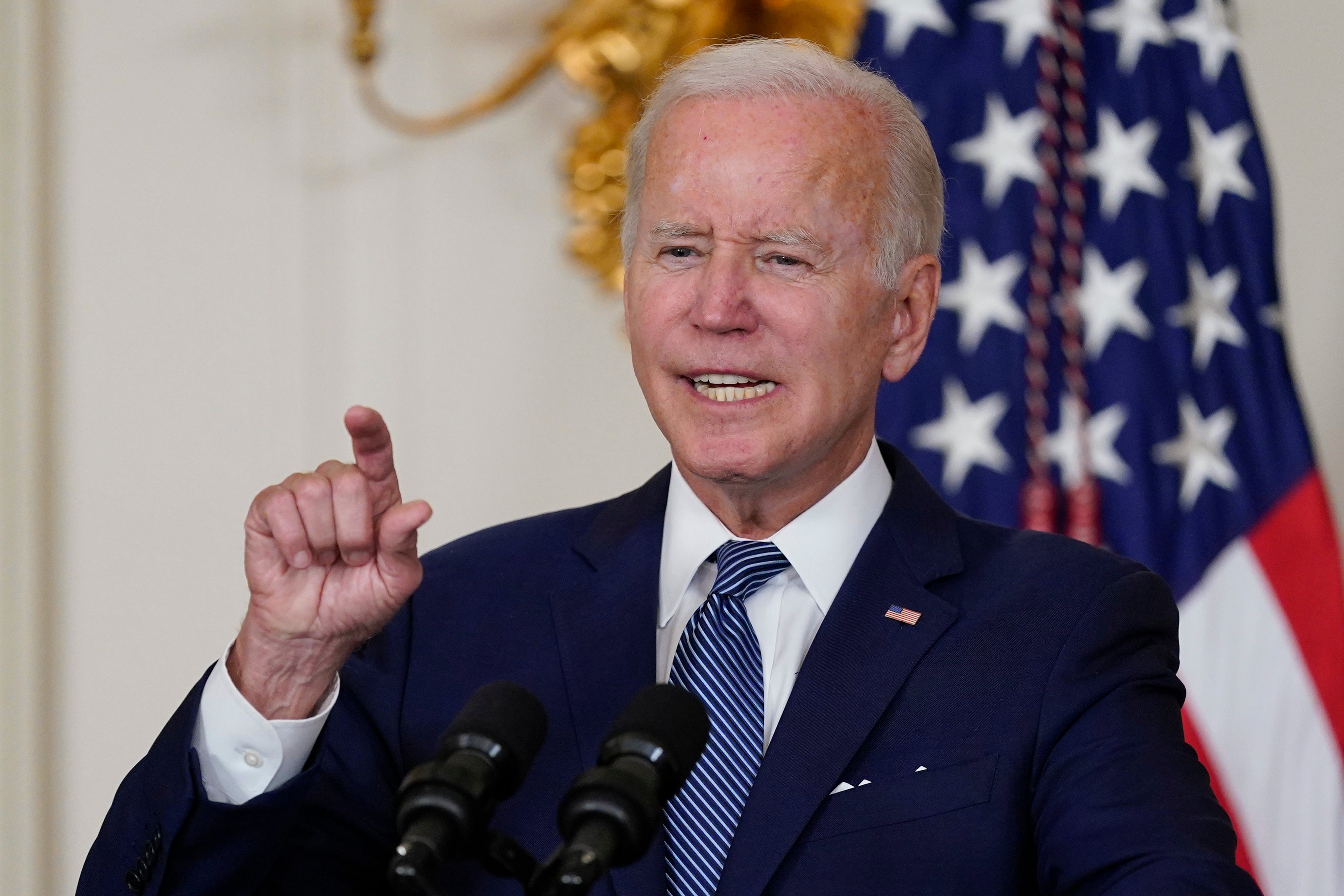The Independent's journalism is supported by our readers. When you purchase through links on our site, we may earn commission.
Against all odds, it looks like Democrats will do well in the midterms
Midterm elections are supposed to be bad for the incumbent president’s party, but a slew of unexpected results means things are looking surprisingly good for Biden in the November elections


Most political prognosticators start from the assumption that midterm elections are generally bad for the president’s party, all the more so when that party also controls both the House and Senate. Donald Trump in 2018, Barack Obama in 2010, George W Bush in 2006 and Bill Clinton in 1994 all saw their parties lose the majority in at least the House, if not the Senate, while they were in the White House.
It’s a hard pattern to break – but a few recent results have some Democrats thinking that the current midterm election cycle might turn out to be rather less of a disaster.
Example one: Democrat Mary Peltola has a slight lead in Alaska’s special election to fill its sole House seat. To put that in context, the late Republican Congressman Don Young, who died earlier this year, had held the seat since 1973, Alaska only having become a state in 1959. If Peltola were to win, she would be not just the first Democrat to represent it since 1973, but the first Native Alaskan woman ever to serve in Congress.
Example two: Minnesota last week held a special election to fill the seat left by the late Jim Hagedorn in its first congressional district. This is the exact type of Obama-turned-Trump rural district that Democrats lost when they swapped out winning suburbs; in the end, Republican Brad Finstad won the district but underperformed Trump by about 3 points. Dave Wasserman at the Cook Political Report observed that Democratic candidate Jeff Ettinger significantlyoverperformed in Minnesota counties like Olmsted and Blue Earth.
Example three: The June special election in Nebraska’s first district. Wasserman – whose mantra “I’ve Seen Enough” signals he’s ready to call a race, typically before the TV networks – observed that Republican Mike Flood significantly underperformed the former president in the district, winning by only 6 points to Trump’s 11.
All of these victories come after the Supreme Court overturned Roe v Wade – and the list also includes the stunning events in Kansas last month, where pro-choice voters beat back a constitutional amendment that would have scrapped the right to an abortion in the state.
Of course, Republicans still won the Nebraska and Minnesota races. And more Republicans will likely turn out in the general election, since special elections held in isolation are virtually guaranteed to attract fewer voters. But any Republican elected official should see these races as a sign that a red wave will not rise on its own.
And then there’s the good luck Democrats are having on the Senate front. In Pennsylvania, Lieutenant Governor John Fetterman has significantly outraised physician and former television personality Mehmet Oz. That achievement is particularly notable when talking about a state that Joe Biden only narrowly won in 2020, despite endlessly emphasizing his roots there. Fetterman has also relentlessly pummeled Dr Oz for not residing in Pennsylvania but rather in neighboring New Jersey — and for his already-infamous “crudité” video.
This bleeding of Republican money and support will likely only continue. As Shane Goldmacher at The New York Times reported this week, the National Republican Senatorial Committee is slashing funding in Pennsylvania, Arizona and Wisconsin. For context, NRSC Chairman Rick Scott told your reporter last year that he planned on flipping as many as four seats, singling out Georgia, Nevada, New Hampshire and Arizona as his main targets.
But Scott’s hopes of protecting his own incumbents are in danger. A poll from Marquette University Law School – perhaps the most authoritative poll in Wisconsin – found Lieutenant Governor Mandela Barnes beating incumbent Republican Senator Ron Johnson by seven points, a lead that’s widened from just two points in June.
To be clear, this hardly guarantees that Democrats will successfully turf Johnson out. In 2016, many Republicans wrote off Johnson, but he wound up outperforming Trump. There is still ample time for public opinion to shift against the Democrats, for inflation to spike again, or for some unforeseen crisis (or all three). And it is entirely likely that Republicans flip the House while Democrats hold the Senate. But for now, it’s clear that across the board, Democrats are in a far better position than they were just a couple of months ago.
If, unlike Dave Wasserman, you haven’t seen enough politics, you can sign up for our Inside Washington newsletter here.
Join our commenting forum
Join thought-provoking conversations, follow other Independent readers and see their replies
Comments